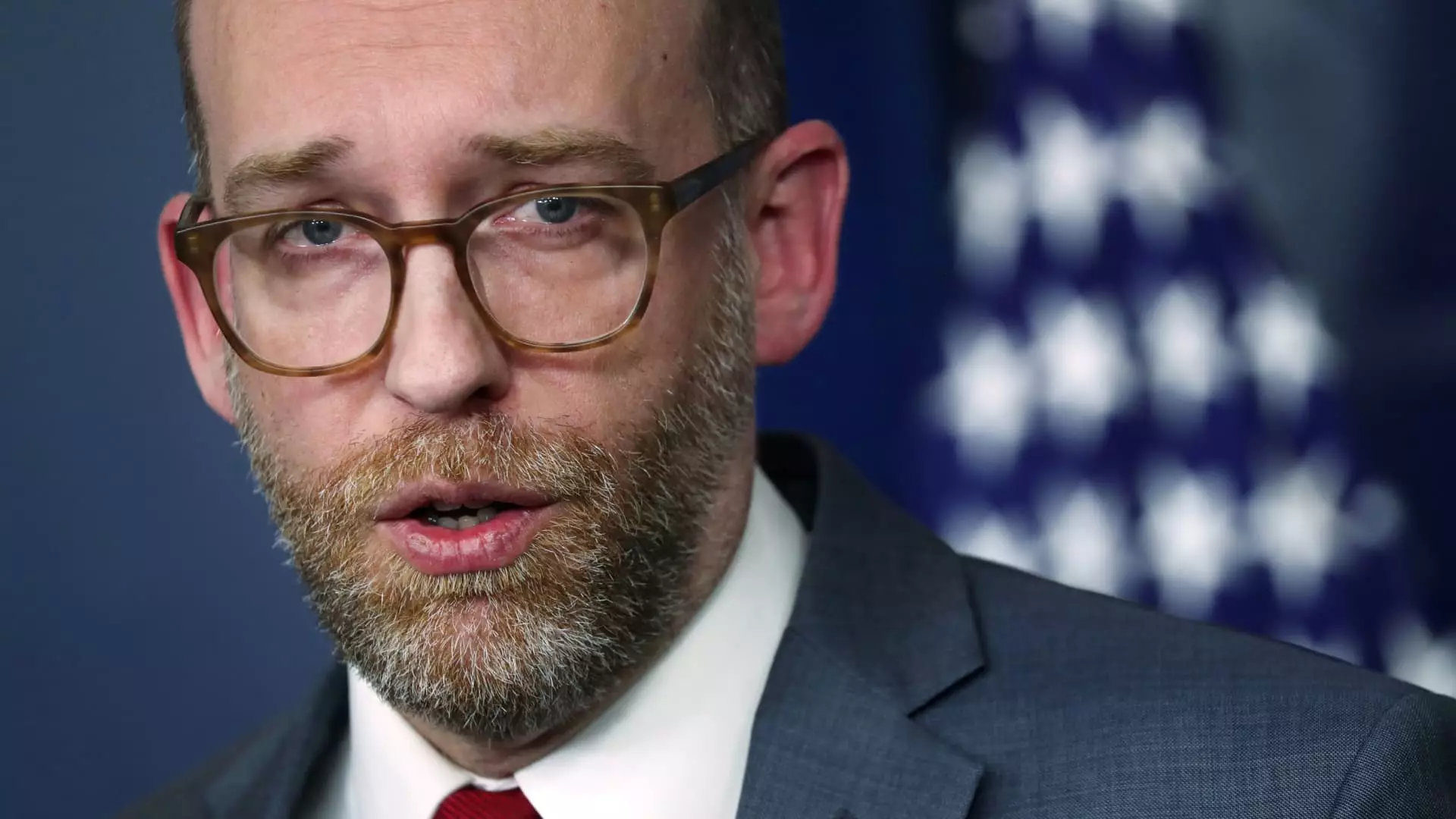In a startling move that has left many within the Consumer Financial Protection Bureau (CFPB) reeling, several dozen employees, predominantly in probationary status, received termination notices late last Tuesday. This development signals not only a shift in the agency‘s operational philosophy but is also emblematic of the broader administrative changes currently underway in the federal government under the Trump administration.
Probationary employment serves as a crucial period during which newly hired federal employees are evaluated to ensure their performance meets the agency’s standards. Typically spanning a year or two, this stage does not necessarily reflect on an employee’s skill or potential but is rather an assessment of fit within the agency’s needs. The decisions made during this phase can have far-reaching consequences, not only for those directly affected but also for the morale and stability of the organization as a whole. The abrupt dismissals are alarming, particularly given that they come amidst intense scrutiny from new leadership, which has openly expressed intentions to restructure—or even dismantle—various federal agencies.
As reported by NBC News, the Office of Personnel Management has sought lists of recently hired employees, indicating that they might be more vulnerable to termination. This strategy raises concerns about the motives and long-term plans of the current administration regarding the federal workforce. The chilling effect of such policies cannot be overstated: multiple agencies, from the Federal Bureau of Investigation to the Environmental Protection Agency, face uncertainty as they navigate an atmosphere characterized by job insecurity. Such a climate is particularly detrimental, as it stifles the ability to plan for future projects and undermines the effectiveness of federal operations.
The atmosphere within the CFPB had already shifted by late last week when personnel from Elon Musk’s Department of Government Efficiency were allowed access to the agency. Acting CFPB director Russell Vought’s directive to cease all bureau work until further notice underscores a profound upheaval in agency operations. While Musk’s and Vought’s calls for the elimination of the CFPB are in the public domain, the implications of their statements extend deeply into the organizational culture and operational integrity of the bureau.
The situation has been particularly bewildering for some employees, including Johanna Hickman, a senior litigation counsel who received her termination notice despite being newly appointed in June 2023. Hickman’s assertion of the terminations as “unlawfully executed” draws attention to potential legal ramifications and procedural violations. Employees expected some level of due process, especially when dismissals seemed to lack the proper documentation, such as personalized letters, leaving generic fields in place. Such oversights further denote a breakdown in procedural integrity.
The abrupt nature of these dismissals has a cascading effect on employee morale. The enforcement division, in particular, has reportedly faced significant cuts, undermining previous hiring efforts championed by former director Rohit Chopra. With around 1,700 employees prior to the job cuts, the agency’s ability to function efficiently in enforcing consumer protection laws is now compromised. Given these dynamics, many remaining employees report feelings of confusion and paranoia, questioning not only their job security but also the agency’s future direction.
The aftermath of this turmoil may lead to an exodus of talented individuals who could seek more stable opportunities elsewhere, exacerbating the existing talent drain within the federal employee pool. This scenario risks creating a vicious cycle where a beleaguered agency struggles to perform its mandated duties while simultaneously facing a loss of institutional knowledge and experience among its workforce.
The terminations at the CFPB serve as a microcosm of the larger narrative regarding accountability and governance in federal agencies. As organizations like the CFPB grapple with evolving leadership policies, the implications resonate beyond their walls, affecting constituents who rely on their services for consumer protection. The actions taken in the coming months will not only determine the fate of the CFPB but may also set a precedent for how federal policies are enacted and enforced in an evolving political landscape. The critical question remains: will accountability and due process endure amidst the seismic shifts in federal governance?

